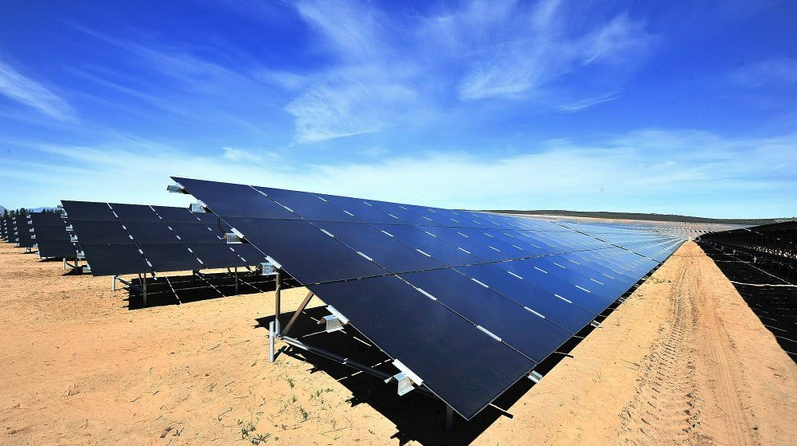Earth Day marks a time for reflection and decisive action concerning conserving the environment, with 2024 initiatives aimed at reducing the usage of plastics.
The first Earth Day was commemorated on April 22, 1970, as a way of raising awareness around the importance of environmental conservation.
Since that pivotal day in world history, Earth Day has become a movement that represents a growing call to action for global citizens everywhere, to work together in safeguarding our planet and building a sustainable future.
Businesses, both big and small, have an imperative role to play in taking up this mantle and promoting a people- and planet-first philosophy at every level of the workplace and to extend the impact into homes and communities.
The call for green funding
The belief that only large corporates and enterprises can make a meaningful impact on the environment and broader society is a common misconception.
Thousands of small businesses across the country demonstrate every day that every step towards a sustainable future contributes to the bigger picture.
In this regard, access to finance plays a key role in opening the market to small businesses and giving them the support needed to participate more proactively in the green economy.
The World Bank estimates that close to $1.4 billion (R26.7bn) is needed to achieve South Africa’s climate mitigation goals and a further $308bn is needed for climate adaptation.
The pressing need represents an unmatched opportunity for investors and financiers to enter the market to provide finance to business owners who believe in the potential of the green economy.
Making the transition to a more climate-resilient country holds invaluable opportunities for job creation, infrastructure revitalisation, business growth and economic stimulus. To this point, the International Finance Corporation predicts that investment opportunity for climate-related business in South Africa will reach almost $560bn by 2030.
The South African government has made inroads into supporting the important cause, with the introduction of one of the world’s first Green Finance Taxonomy – a formal classification system that defines the minimum set of assets, projects, activities and sectors that are eligible to be defined as “green”.
With the introduction of the new classification system, businesses can lean on their environmentally friendly initiatives and status as a unique selling and value proposition.
It’s incumbent on industry stakeholders, traditional lenders and independent financiers to match the state-level efforts with products and services that are geared to supporting this drive.
The future will undoubtedly see the rise of more tailored funding programmes for businesses that share this value system.
An example of these kinds of initiatives is the Business Partners Ltd’s Green Buildings Finance Programme. It provides successful SME applicants with up to 100% property finance, ranging from R500 000 to R50 million, to build, buy or retrofit green buildings either as business premises, warehouses, hotels, educational facilities or even retail developments.
These kinds of interventions at a funding level, will play a key role in giving the SME ecosystem the boost it needs to enter the market for sustainable business and, ultimately, make its contribution to helping South Africa work towards carbon neutrality.
In celebration of Earth Day, we’d also like to put the spotlight on these three outstanding South African businesses:
Green sneaks |
Reefer Shoes was the proud winner of the award in the footwear category at the 2023 Twyg Sustainable Fashion Awards.
The brand is on a mission to “supply South Africa, and the world, with unique and sustainable footwear that appeals to a diverse audience”.
The range features vellies, sneakers, flip flops and boots sustainably and locally manufactured out of cork and hemp. Reefer is dedicated to implementing a zero-waste manufacturing approach, aiming to reduce its environmental footprint at all stages of the production process.
It exclusively uses locally obtained materials and collaborate with local artisans to craft their shoes, demonstrating their commitment to bolstering the local economy and community.
Green cleaning |
Cindy Mkwanazi, of ChemKhowa, a manufacturer of effective, affordable and environmentally friendly cleaning agents, was the first runner-up at the 2022 SME Toolkit Business Plan Competition, hosted by Business Partners Limited.
ChemKhowa is a township business, established to provide South African consumers with eco-friendly alternatives to detergents and cleaning products. Its expanding product range includes degreasers, drain cleaners, liquid hand soap and oven cleaner.
Since becoming a runner-up, she has gone on to win the title of 2023 Manufacturing Founder of the Year in the Sub-African Region SHE Awards – Under 30.
ChemKhowa is now a fully recognised manufacturing lab that is registered with Proudly South African and is in the process of supplying Makro Online.
Green gifting |
Authentic Roots was founded with a deep commitment to eco-friendly and animal-conscious products, inspired by a passion for education, food cultivation and wellness.
Owner and author Tanya van Rees initiated South Africa’s first educational and plantable children’s storybook, along with a food and education garden programme, while also obtaining qualifications as a nutritionist adviser.
Van Rees is a committed advocate for humanitarian causes and environmental stewardship.
She believes in the power of responsible business practices to benefit communities and protect the environment. Authentic Roots draws inspiration from nature and the philosophy of living consciously and collaboratively.
Ben Bierman is a managing director at Business Partners Limited.
*The views expressed here are not necessarily those of IOL or of title sites

Stay informed with The Namibian – your source for credible journalism. Get in-depth reporting and opinions for
only N$85 a month. Invest in journalism, invest in democracy –
Subscribe Now!






